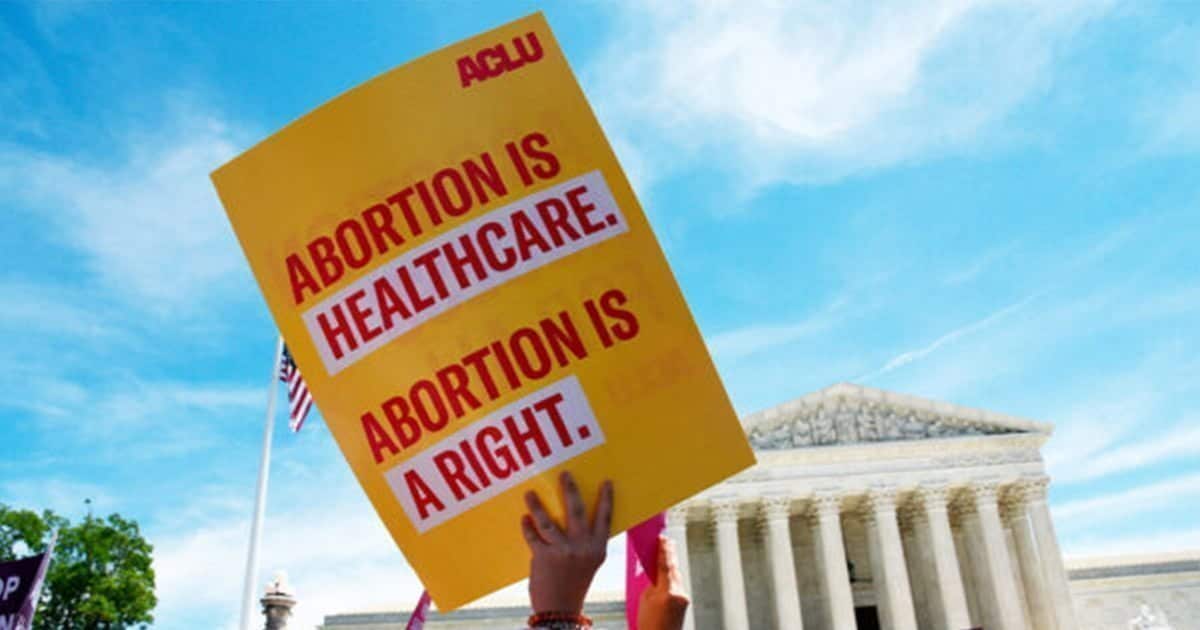Gov. Josh Shapiro on Tuesday said his administration won’t defend in court a state law that prohibits state Medicaid funding from being used on abortion.
“Pennsylvania’s Constitution prohibits discrimination on the basis of sex — and as our State Supreme Court ruled earlier this year, the state ban on Medicaid coverage for abortion services is sex-based discrimination,” Shapiro said in a statement. “Following that ruling, today I am filing notice with Commonwealth Court stating clearly: the current ban imposes an unsustainable burden on women, and therefore violates our State Constitution. My Administration will not defend this ban in court.”
The Jan. 29 ruling reversed a Commonwealth Court decision allowing Republican legislative leaders to intervene in the lawsuit and granting their objections to the challenge by women’s health care providers and their clients.
The Supreme Court sent the case back to Commonwealth Court with instructions to evaluate the providers’ claims that the state Abortion Control Act violates the equal rights and equal protection provisions of the Pennsylvania Constitution by restricting the use of public funds for abortion care.
In the filing Tuesday, the Shapiro administration says that after reviewing the Supreme Court’s decision, it has concluded that the Abortion Control Act’s prohibitions on using public funds to pay for abortion — unless the life of the mother is at risk or the pregnancy is the result of rape or incest — violate the constitution.
“The Administration’s notice to the court is a welcome acknowledgment of what we’ve long known to be true, which is that the Pennsylvania Constitution protects reproductive autonomy rights,” said Susan J. Frietsche, co-executive director of the Women’s Law Project and lead attorney on the case. “We look forward to returning to Commonwealth Court and eliminating Pennsylvania’s ban on Medicaid coverage of abortion once and for all.”
The administration’s position statement, filed ahead of a full brief due Aug. 16, says that while it has concluded that it is unable to advance a meritorious defense of the restrictions, it is bound by law and cannot consent to their elimination. It intends to argue in its brief that the providers are entitled to judgment in their favor.
“I will always protect equitable access to reproductive care — and my Administration looks forward to making our arguments and urging the Court to strike down this ban that denies Pennsylvanians access to health care based on their sex,” Shapiro said.
Spokespeople for Senate Majority Leader Joe Pittman (R-Indiana) and House Minority Leader Bryan Cutler (R-Lancaster) did not immediately respond to requests for comment Tuesday. Both opposed the challenge by abortion providers.
The Supreme Court ruling overturned a 42-year-old decision that upheld the constitutionality of the Pennsylvania Abortion Control Act’s ban on Medicaid-funded abortions except in cases of rape or incest. The Commonwealth Court panel cited the decision when it dismissed the abortion providers’ lawsuit in 2021.
“The right to make healthcare decisions related to reproduction is a core important right encompassed by the enmeshed privacy interest protected by our Charter,” Justice Christine Donohue wrote in a complex and nuanced 219-page lead opinion for the court. “Whether or not to give birth is likely the most personal and consequential decision imaginable in the human experience. Any self-determination is dependent on the right to make that decision.”
Justice Kevin Dougherty, who concurred in the overall result of the decision, said he agreed with two dissenting justices that the case was not about the right to abortion and it was not the right time to decide whether there is a fundamental right. Dougherty added that the question would likely make its way back to the high court.
“The majority’s incredibly insightful position may ultimately prevail in the end. But I believe we should take such an important issue directly, only after the lower court has entertained it, with full notice to the bench, bar, and public,” Dougherty wrote.
Chief Justice Debra Todd and Justice Sallie Mundy dissented in the outcome, saying there wasn’t a sufficient reason to overturn the court’s earlier decision. Justices Kevin Brobson and Daniel McCaffery, who both joined the court after the appeal began, did not participate in the decision.
The underlying lawsuit was filed by the Allegheny Reproductive Health Center, Allentown Women’s Center, Delaware County Women’s Center, Planned Parenthood Keystone and the organization’s southeastern and western Pennsylvania chapters.
Pennsylvania Capital-Star, where this article was originally published, is part of States Newsroom, a network of news bureaus supported by grants and a coalition of donors as a 501c(3) public charity. Follow Pennsylvania Capital-Star on Facebook and Twitter.






